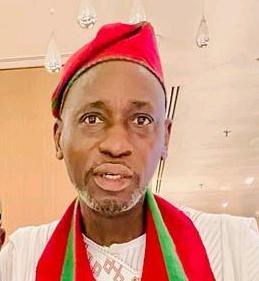News Analysis & Commentary – By Abdul Lauya
……Withdrawal of Yushau Shuaib by NIPSS over pro-reform articles sparks debate on academic freedom and institutional overreach
The unfolding controversy between Nigeria’s foremost policy think tank, the National Institute for Policy and Strategic Studies (NIPSS), and public relations expert Yushau Shuaib has become a litmus test of institutional integrity, academic freedom, and the health of democratic engagement in Nigeria.
The withdrawal of Shuaib from Senior Executive Course 47, allegedly over an article that offered support to President Bola Tinubu’s economic reforms, raises pressing questions: Is NIPSS acting within its mandate, or is this a chilling case of bureaucratic overreach aimed at muzzling non-conforming voices?
The Crux of the Controversy
The timeline is instructive. After publishing an opinion piece defending Tinubu’s economic reforms, Shuaib was reportedly suspended by NIPSS. In his defense, Shuaib argued that he was being punished not for insubordination or misconduct, but for expressing a position that apparently ruffled feathers within the institute.
The ensuing coverage, ranging from Premium Times’ exposé to PRNigeria’s sharp rejoinder and Eye Reporters’ pointed analysis, has given the public a fragmented but troubling portrait of internal intolerance at an institution that ought to model deliberative rigor.
A fresh development came today, with PRNigeria reporting that Prof. Ayo Omotayo, the Director-General of NIPSS, officially withdrew Shuaib from the course over his “economic articles.” If substantiated, this raises critical red flags about freedom of expression in an institution mandated to mold national thought leaders.
Between Policy and Power
The title of Eye Reporters’ analysis, “NIPSS vs Shuaib: Policy Institute or Power Play?”, aptly captures the dilemma. At its core, this episode questions whether NIPSS still functions as a policy laboratory or whether it has drifted into the domain of authoritarian orthodoxy.
The mission of NIPSS is to serve as a crucible for generating informed policy prescriptions through robust debate. That mission collapses if participants are expected to toe an unofficial ideological line. If a course participant cannot write or speak in defense of a democratically elected government’s policy, whether for or against, without facing sanction, what then is the value of intellectual participation in the public sphere?
Implications for Nigeria’s Democracy
Nigeria’s democracy remains precariously positioned. The tolerance for dissent, plurality of ideas, and protection of civic voices are foundational to democratic resilience. NIPSS’s action, if indeed motivated by a distaste for Shuaib’s supportive views, sends a dangerous signal: that institutional loyalty supersedes national interest, and that dissent, even in favor of government, is unwelcome if it does not align with the personal preferences of those in charge.
The weaponization of disciplinary procedures to silence opinion is a form of soft censorship. It entrenches a culture of fear, compliance, and mediocrity. If NIPSS, the supposed think tank of the nation, cannot tolerate diverging or even affirming viewpoints, what hope is there for free expression in less exalted spaces?
A Call for Transparency and Review
At the very least, NIPSS owes the public and its stakeholders a transparent account of the decision to suspend and now withdraw Shuaib. Was due process followed? What specific policies were violated? Was there an appeals process? A failure to address these questions may deepen the suspicion that the institute is more interested in enforcing internal orthodoxy than cultivating strategic thinkers.
President Bola Tinubu, now directly petitioned, cannot afford to ignore this episode. It touches on the soul of governance: whether Nigeria will be a nation led by ideas or subdued by institutional insecurity.
Conclusion
The Shuaib-NIPSS saga is more than a bureaucratic squabble. It is a mirror reflecting the uneasy balance between authority and liberty in Nigeria’s evolving democratic experiment. If policy institutions cannot model tolerance, integrity, and openness, then Nigeria’s intellectual future, and by extension, its political future, faces a grave threat.
For advert placement and inquiries, publication of press releases, and news coverages, please call: Phone: 08052898434 Email: editor@eyereporters.com, click here to view the advert rates.



